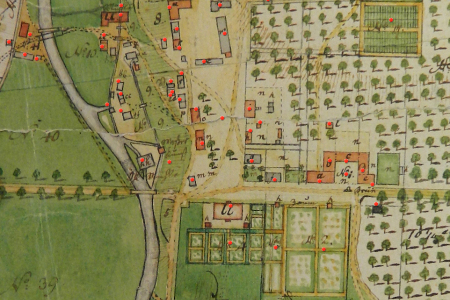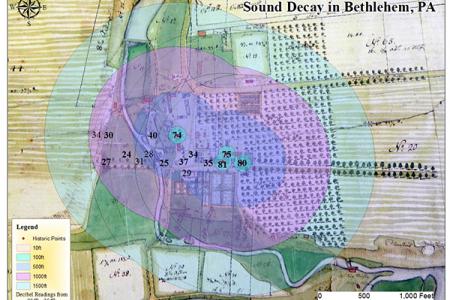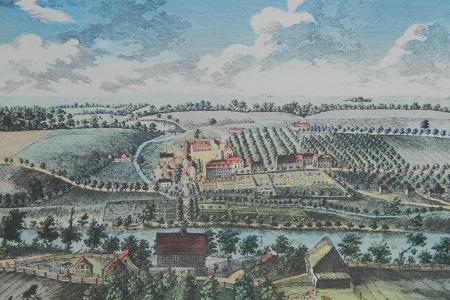Friends & Strangers
From 1741 to 1762, Moravians living in Bethlehem utilized a communal economic system referred to as the Economy. Individuals did not own their own land or businesses, and the profits earned by church members were committed to a common account. Moravians also lived in communal housing groups called “choirs” that were defined by age, gender, and marital status. These social and economic systems dictated the way people lived, worked, worshipped, and sang. Similarly, the soundscapes of Bethlehem’s communal and industrial buildings, gardens, orchards, and fields, defined both internal and external social relationships. What you could hear and how you could sing became important aural markers of communal belonging or isolation.



